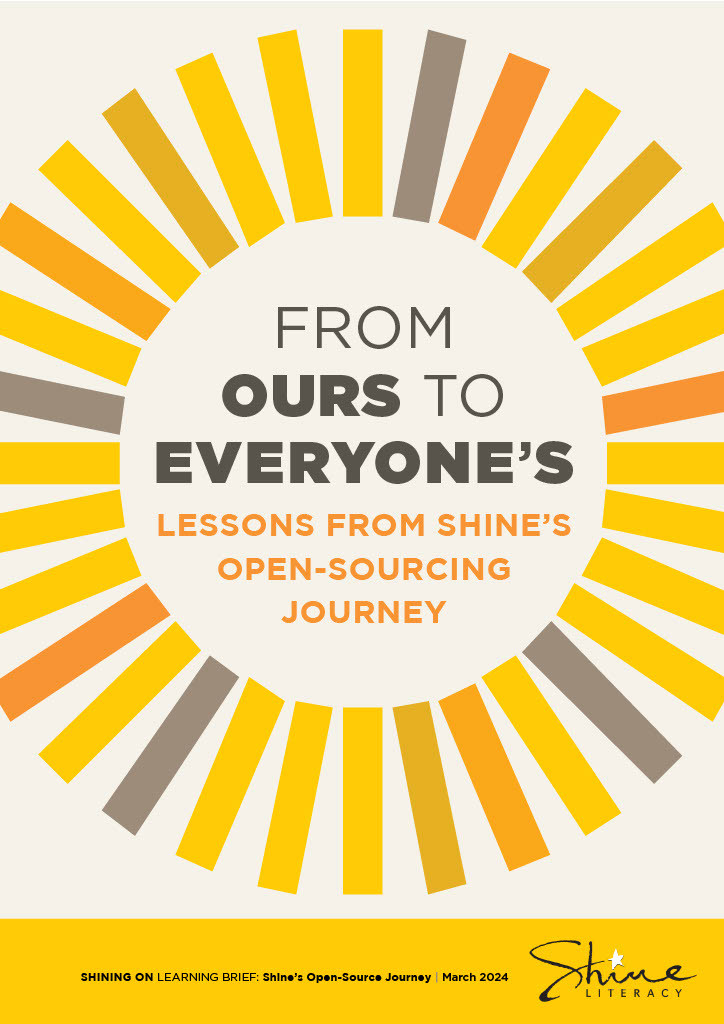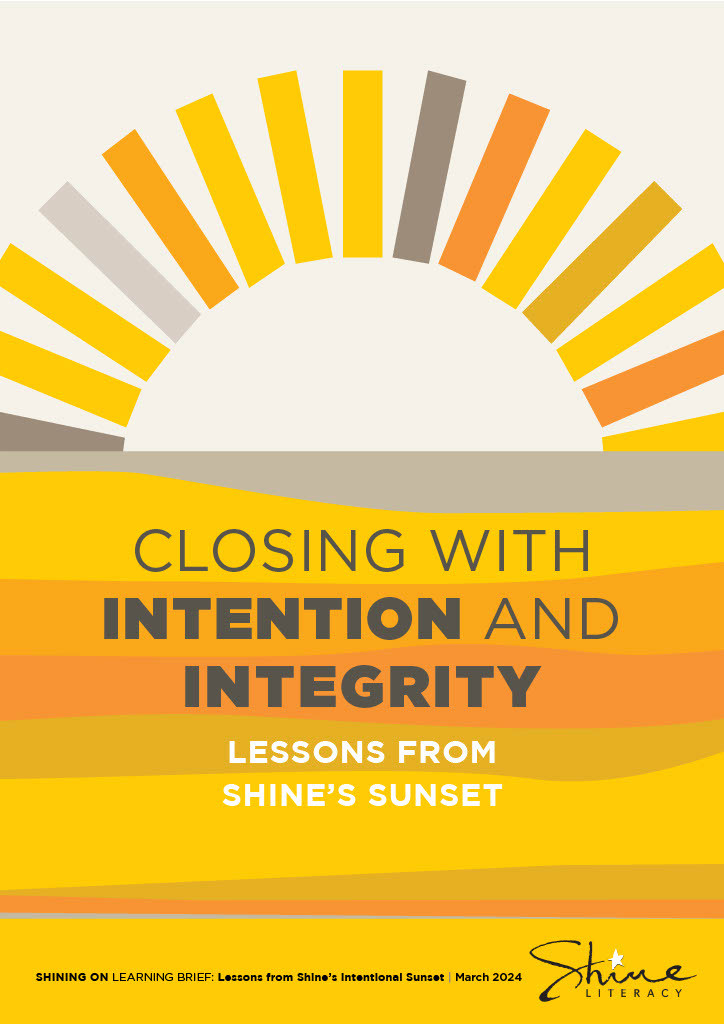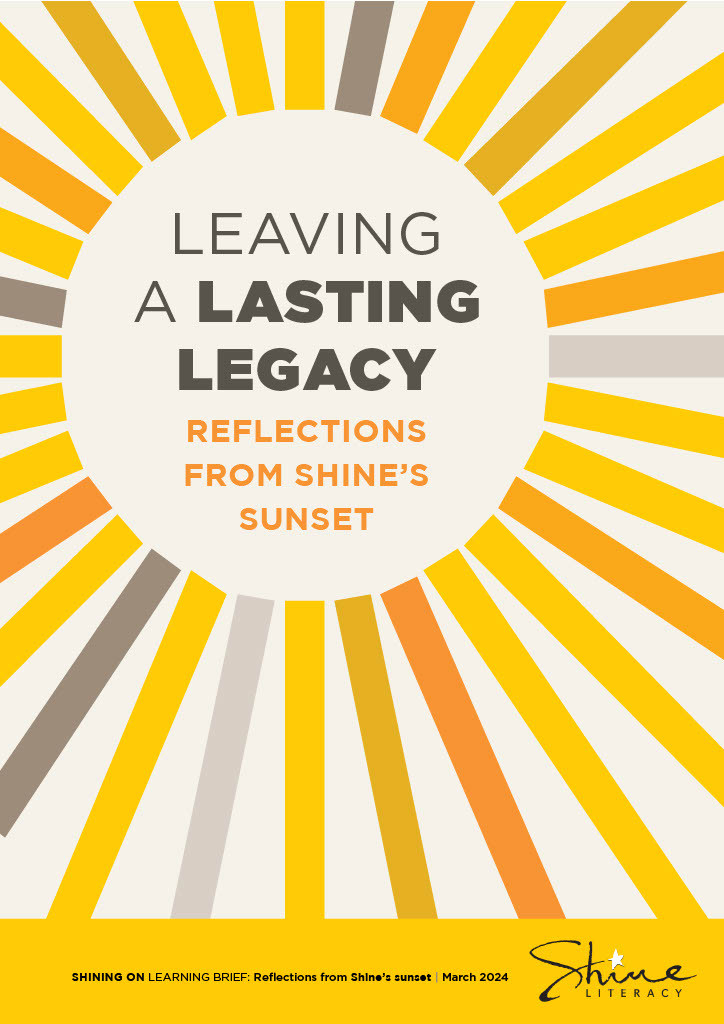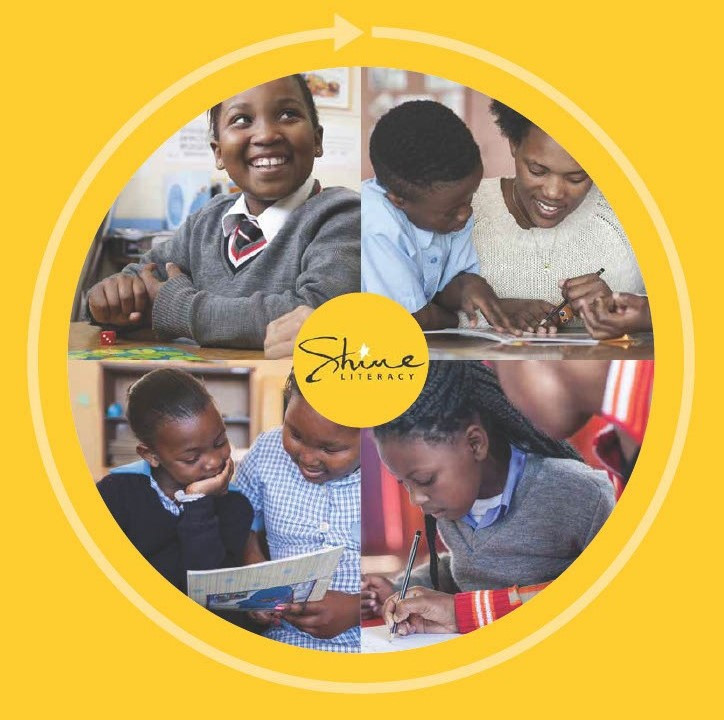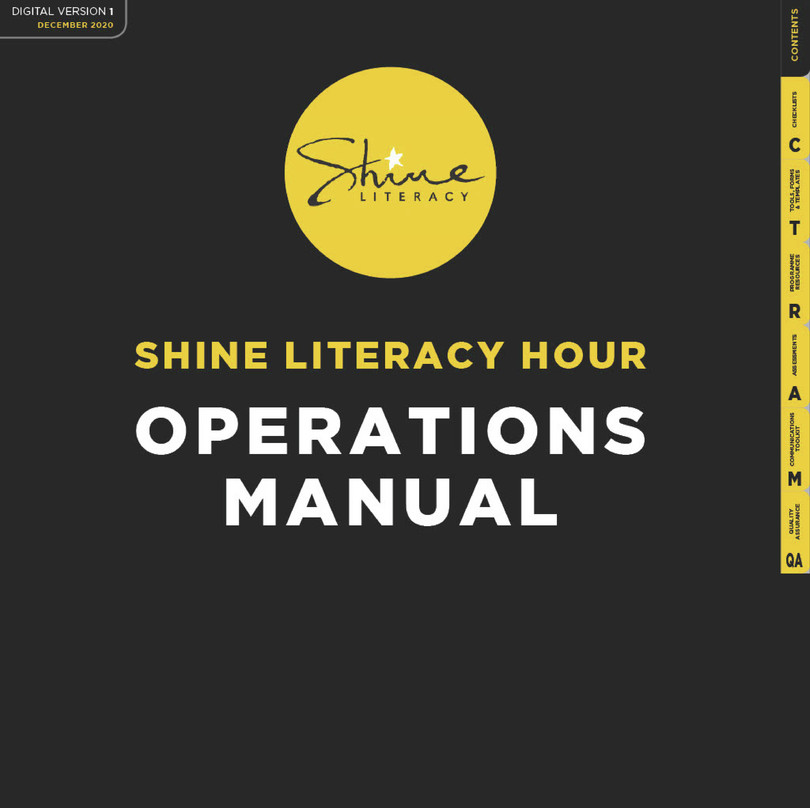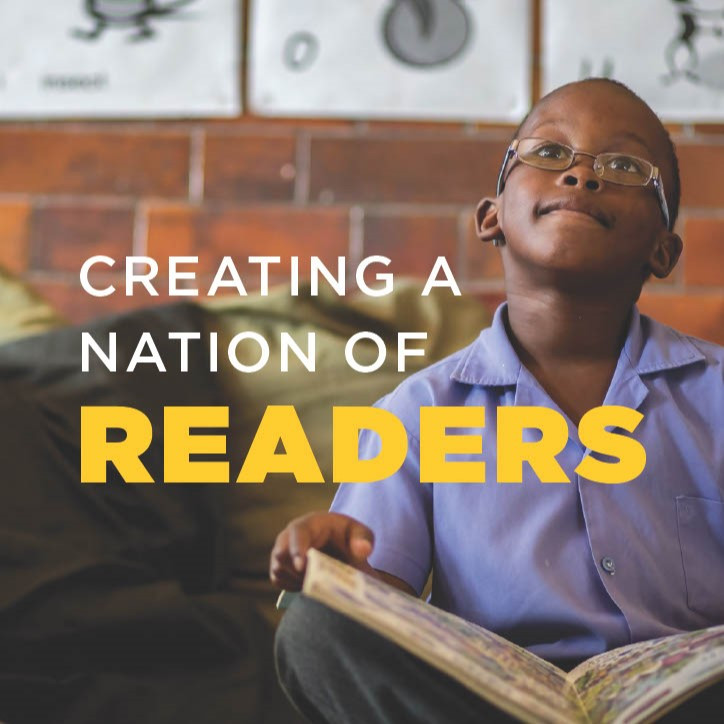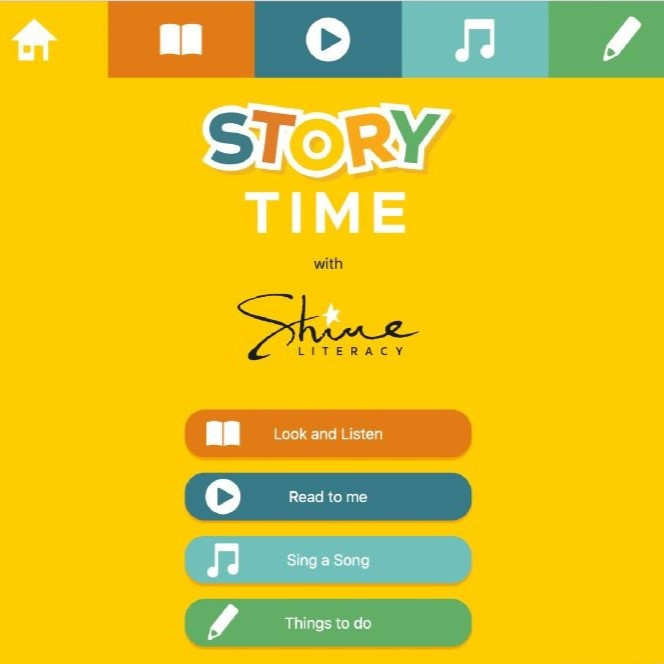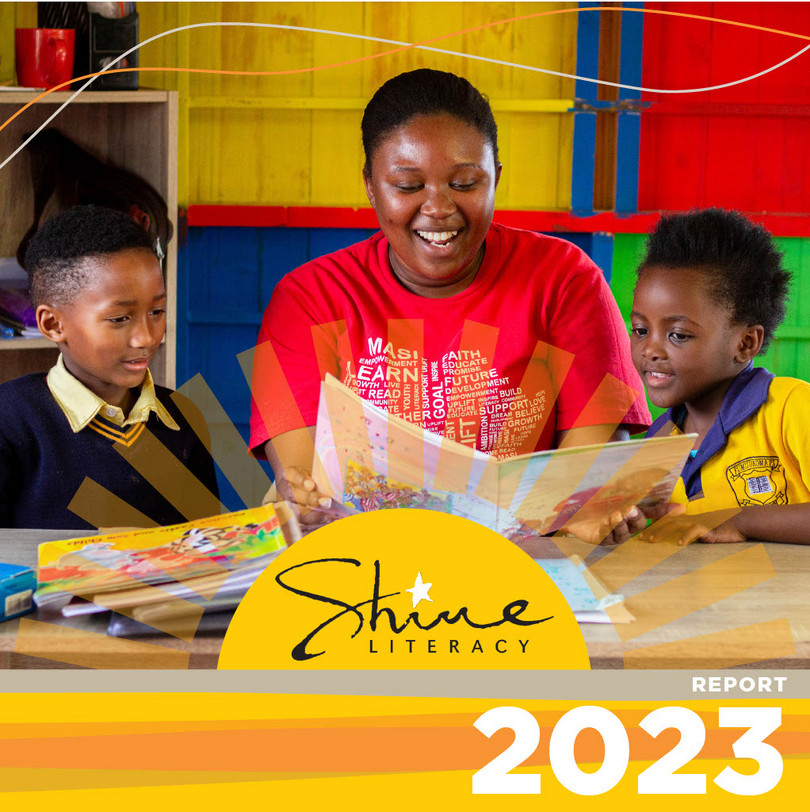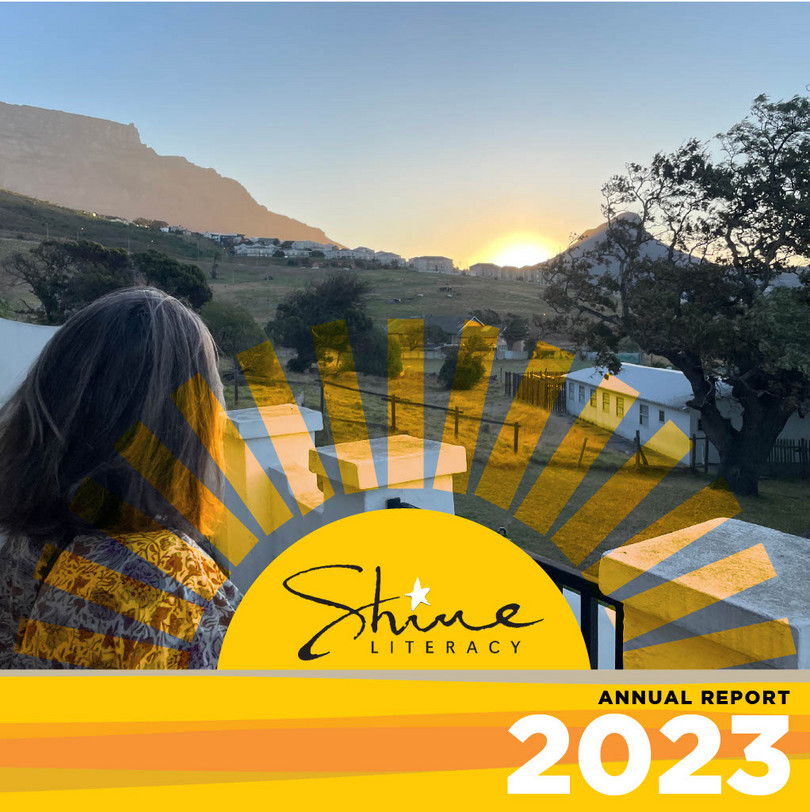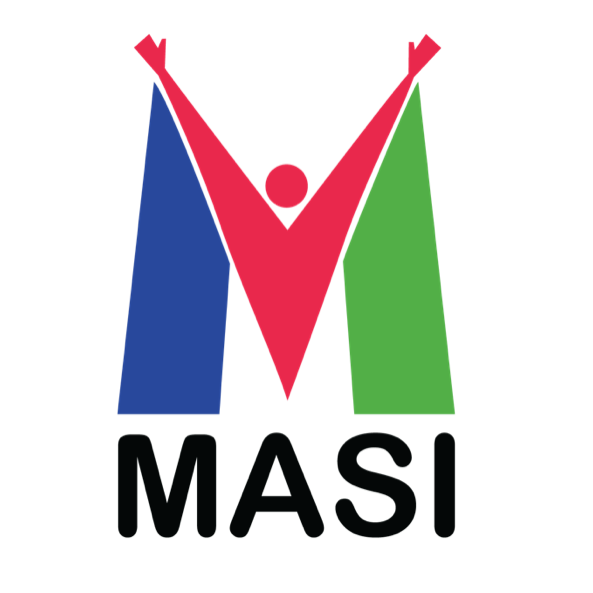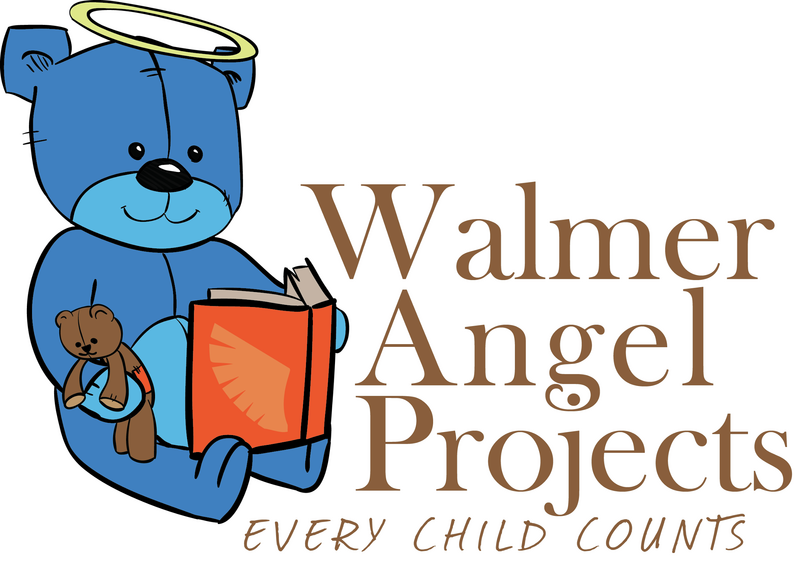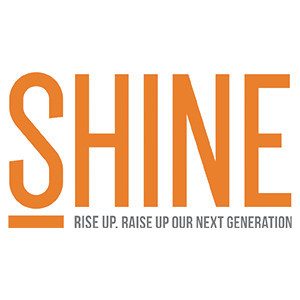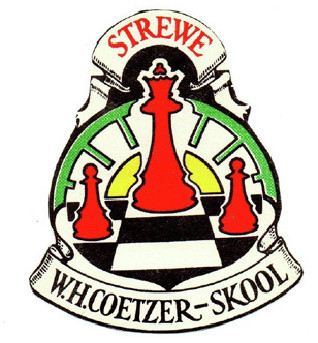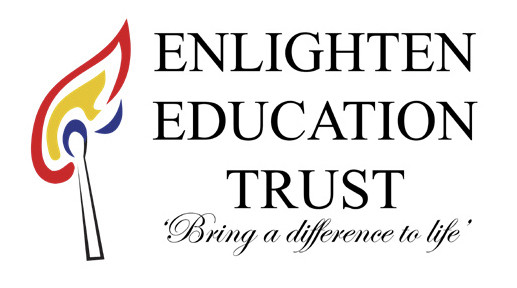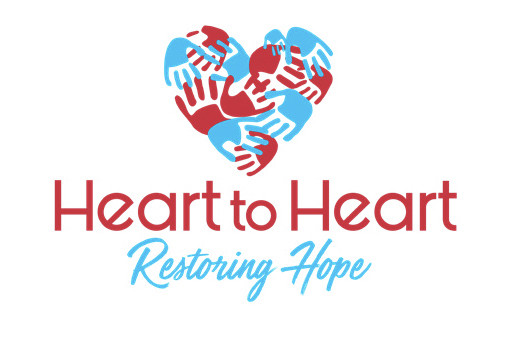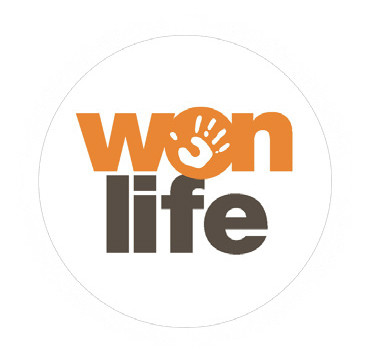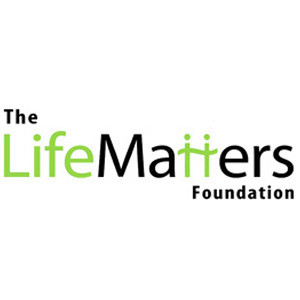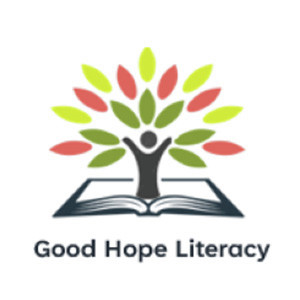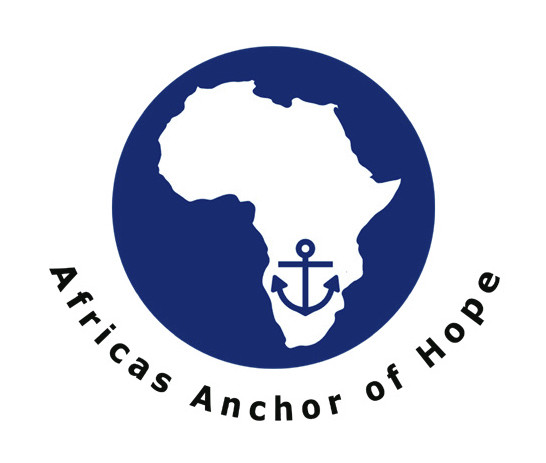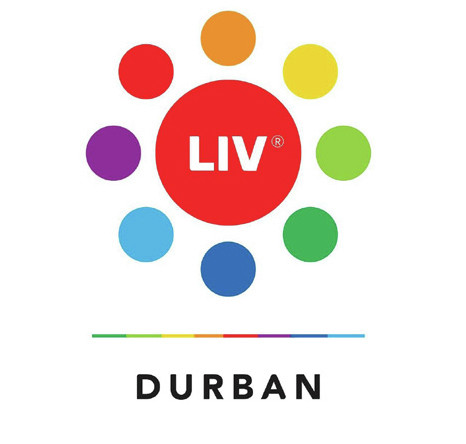- 23
years of literacy programmes - 63
schools supported - 34 891
children reached - 2 265
volunteers - 582
youth trained - 192 607
reading packs sent out

Shine Literacy ran its final programmes in 2023 and closed in 2024, but its legacy is still Shining On.
Shine’s sunset
Why did Shine Literacy close?
After 23 years of operation, Shine Literacy made the bold decision to close, or ‘sunset’, in March 2024. The South African literacy landscape had changed significantly since its launch, and this change accelerated during the Covid-19 pandemic. Shine’s Founder-Director and Board of Trustees realised that sustaining Shine as a non-profit organisation was not the only or best way for its model, resources and learnings to help fulfil its mission to ‘create a nation of readers’. Instead, Shine chose to invest its reserves and resources into its partners to make a long-lasting impact.
The Chair of Shine Literacy’s Board of Trustees shared this letter to explain the rationale behind its closure.
How did Shine approach its sunset?
Shine embarked on a one-year sunset designed to be a culmination of its work over the years. It handed over its activities to its social franchise partners, community-based organisations known as ‘Shine Chapters’. It built their capacity, deepened their connection as a network, and donated the bulk of its reserves to these partners so the work could continue.
It also open-sourced its model and materials so they could be used by schools, community-based organisations and committed volunteers around the country to help struggling readers become confident readers. It offered sector-wide trainings and made donations to partners who work in and support the literacy sector. And it committed to sharing what it learned during the sunsetting process with the broader nonprofit community.
What happened to Shine’s learning resources?
Shine partnered with Wordworks, a well-established early language and literacy organisation that works with caregivers of children aged zero to eight, to act as a custodian of Shine’s resources indefinitely. It also made a donation to Wordworks to develop a user-friendly resource hub for early literacy materials, and to maintain Shine’s resources long-term.
The resource hub will launch in 2025. Until then, materials are available on request via info@wordworks.org.za.
What happened to Shine’s Centres and Chapters?
After the COVID-19 pandemic lockdowns, Shine chose to close its centres and hand over the operations of school-based programmes to the schools themselves. During its sunset, Shine worked closely with Chapters to strengthen their governance, fundraising and strategic planning and to build their connectedness as a network. It also donated money and resources to Chapters to invest in long-term and sustainable programming led by community-based organisations across South Africa.
For more information about Shine’s sunset and learnings, please read its ‘Shining On’ learning briefs.
Shine’s sunsetting strategy
Shine built its sunsetting strategy by starting with the end in mind: where did Shine want to be when it closed in in March 2024? The strategy had six main goals:
- Strengthen Chapters to continue, deepen, and grow their work in the schools and communities they support.
- Open-source materials for wider use so they can continue helping children indefinitely.
- Build awareness, skills, and knowledge about key reading support skills in volunteers, paraprofessionals, and the people who support them.
- Fulfil all existing programme, funder, and partner commitments alongside the sunset process.
- Sunset with integrity to Shine’s values and ethos; accountability to its team, partners, and funders; and adherence to all financial and governance requirements.
- Inspire others by sharing best practice and learnings from this process with honesty, integrity, and courage.
‘Shining On’ learning brief series
The ‘Shining On’ learning brief series captures lessons from Shine’s sunset, which took place from April 2023 to March 2024. You can download the learning briefs here:
Shine’s history
In 2000, Maurita Weissenberg and a handful of volunteers opened the first Shine Centre at a Cape Town primary school that served children from low-income areas. The centre provided weekly individual reading and writing support for seven- to nine-year-olds. Working in partnership with teachers, volunteers, and parents, this programme provided effective and sustained support as children learned to read and write, helping to foster a lifelong love of books and learning.
In 2007, Maurita partnered with Kathryn Torres to establish Shine Literacy and formalise its methods and materials so the Shine Literacy Hour model could be used more widely.


From 2011, Shine Literacy implemented a social franchise model, where it licensed its programme to community-based organisations (known as ‘Shine Chapters’), and offered ongoing training and support. Franchise partners delivered the Shine Literacy Hour model, but were self-funded and independently run. This scaling strategy helped to reach far more children than Shine could serve on its own.
In 2023, its final year, Shine had 13 franchise partners who were running 24 centres nationally and planning to continue and grow their literacy work.
Awards
2006
Woman of Worth
Maurita Weissenberg was selected as a finalist.
2008
IJR Reconciliation Award
The Institute for Justice and Reconciliation honours contributions towards reconciliation in South Africa.
2010
WISE Award Finalist
Shine was one of 30 finalists selected from 89 countries for the prestigious WISE (World Innovation Summit for Education) Award.
2012
STARS Foundation ‘Rising Star’ (Africa-Middle East) Award
Shine was selected from 730 applications in 45 countries across Africa and the Middle East.
2013
SAIF Outstanding Volunteer of the Year
The Southern Africa Institute of Fundraising recognised Kathryn Torres for her voluntary fundraising work for Shine.
2013
Silver Impumelelo Award
Impumelelo rewards innovations that reduce poverty and address key developmental issues of national concern.
“Shine fosters reconciliation through the contact between its volunteers and the learners, as well as between the learners who participate in the programme. In the longer-term, it highlights education as an important means to overcome structural inequality and build a more inclusive society.”
Institute for Justice and Reconciliation
Board
The Shine Literacy Trust was supported by the guidance and leadership of its Board of Trustees.
-
Maurita Weissenberg
2007–2024
-
Kehiloe Ntsekhe
2017–2024
-
Graeme Auret
2017–2024
-
Di Turpin
2010–2024
-
Lolo Mini
2021–2024
-
Kathryn Torres
2008–2019
(Honorary board member 2019–2024)
-
Andrea Cowie
2007–2008
-
Trevor Lobel
2010–2015
-
Hywel David George
2016–2019
-
Maureen Archer
2007–2009
-
Alex Levetan
2013–2015
-
Masivuye Sithole
2018–2021
-
Sulona Reddy
2007–2010
-
Xolisa Guzula
2015–2017
-
Ntombomzi Ndondo
2008–2010
-
Khethiwe Cele
2015–2017
-
Val Tapela
2008–2015
-
Nazli Domingo-Salie
May 2017–Nov 2017
-
Karen Frances Price-Lindsay
2008–2018
-
Amanda Margaret Simpson
2007–2019
Programmes
Shine ran literacy programmes for 23 years. The programmes served 34 891 children, supported by 2 265 volunteers and 582 Shine Teaching Assistants, at a total of 63 schools in South Africa.
Over the years, Shine’s flagship programme, Shine Literacy Hour, successfully helped thousands of Grade 2 and 3 children move from struggling to confident readers. Its model effectively blended science-of-reading principles with storytelling and learning through play, underpinned by nurturing relationships between adults and children. The model can be implemented by caregivers, volunteers and youth-focussed organisations.
At Shine’s sunset, the model was still being implemented by 13 partner organisations, who all planned to continue.
Shine also ran a number of other programmes over the years, including Khanyisa Reading Partners, a youth programme; Book Buddies, a peer reading programme; and a family literacy programme.
Khanyisa Reading Partners informed design of other programmes, including the YearBeyond academic programme run by the Western Cape Government.
Ethos
Shine’s ethos was developed from Nancy Kline’s ‘Thinking Environment’ components, and heavily influenced its work.
- Each individual matters
- Shine creates an environment which affirms a child’s importance.
- Listen with respect and without interruption
- The quality of our attention profoundly affects the quality of other people’s thinking.
- Treat each other as thinking peers
- We learn from one another, regardless of age or qualification.
- Ease creates, urgency destroys
- An environment that encourages children to work at their own pace facilitates learning.
- Practice the art of appreciation
- Be generous and genuine with praise and words of encouragement.
The Shine Literacy Hour programme
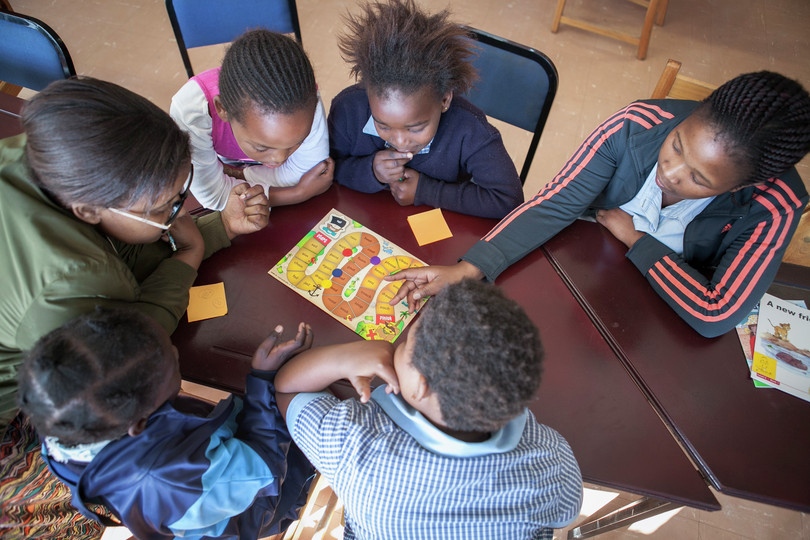
The Shine Literacy Hour is a carefully structured session divided into four parts:
- Paired reading
- Shared reading
- Have-a-go writing
- Word play (games)
The programme uses a wide range of age-appropriate storybooks and readers. In addition, 36 educational games developed specifically for Shine cover all the technical skills children need to learn to read and write.
The programme is based on a Survey of Evidence that lays out the research behind its approach.
The Shine Literacy Hour Manual, Games, and Survey of Evidence can be found in the Resources section.
Youth as teaching assistants
In 2013, Shine began to train unemployed school leavers as teaching assistants. Shine worked with Action Volunteers Africa (AVA) to focus on youth development. AVA provided a stipend and self-development training while Shine trained the youth as teaching assistants.
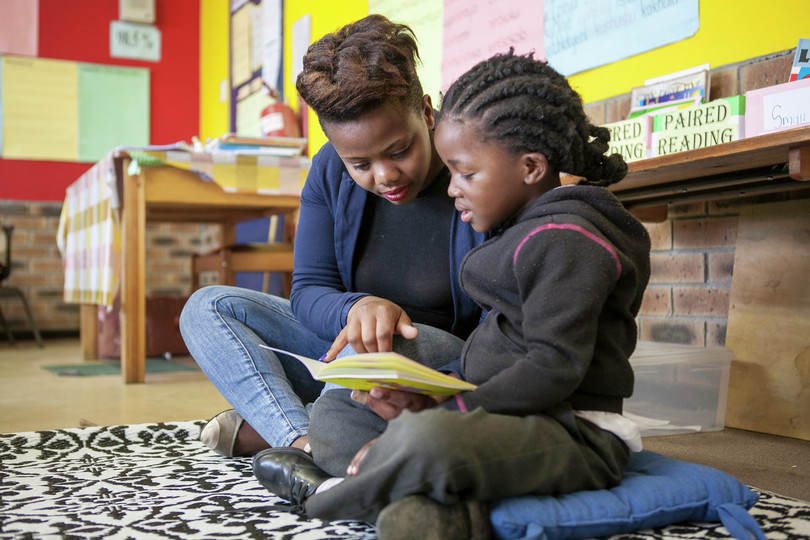
These young people became reading partners in Grade R to 3 classrooms and established a successful programme that benefited both the children and youth.
Over the course of a decade, Shine trained 582 young people as teaching assistants to support 25 schools. Many went on to choose teaching as a career.
Resources
Access the materials used in the Shine Literacy Hour programme, and learn more about the research underpinning its approach.
Still shining on
Where to find Shine’s resources and materials
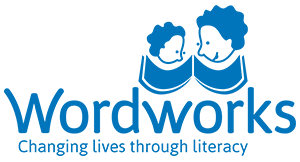
You can find Shine’s resources and materials on the Wordworks website. As part of its sunset, Shine committed to open-sourcing its programmes and key resources so that they can be used and adapted by others. To that end, Shine has partnered with Wordworks to give its materials a home and to maintain them into the future.
Wordworks’ new early literacy resource hub will launch in 2025. Until it is live, you can email info@wordworks.org.za to access Shine Literacy Hour games, training materials and other resources.
Shine Centres and Chapters
Shine’s Chapter model started in 2009 with the goal of expanding its reach through trusted and vetted partners. From 2011, it implemented a social franchise model: Shine shared resources, training, and best practice with Chapters, who implemented Shine Literacy Hour in their schools, community centres, and faith-based environments. Shine’s Chapters are best suited to meet the unique needs of their communities, and these partnerships allowed Shine to reach even more readers than it could have on its own.
At the time of closure, Shine’s Chapter partners were:
Western Cape
- The LifeMatters Foundation (7 centres)
- Won Life
- Enlighten Trust
- Heart 2 Heart
- Common Ground South Peninsula
- Good Hope Literacy
Kwazulu-Natal
- Anchor of Hope (2 centres)
- Liv Village
Eastern Cape
- Masinyusane (4 centres)
- Walmer Angels
Gauteng
- SHINE (2 centres)
- Dare
- W. H. Coetzer Primary
In addition, Shine-inspired programmes were running in the Western Cape at St John’s Primary, Prestwich Street Primary, St Paul’s Primary and Claremont Primary.

Partner organisations
By partnering with organisations that believe in Shine’s vision, our model, training materials, and resources are continuing to support struggling readers even after Shine has formally closed its doors. Visit their websites to learn more about their work in improving literacy.

